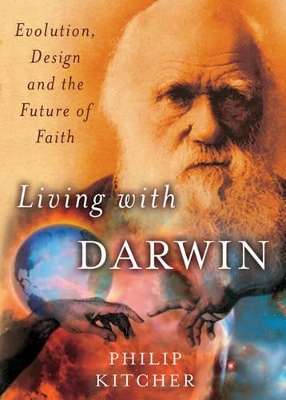Philosophy In Action
1 total work
Recent debates about Intelligent Design have brought into high relief the huge schism between those who believe in Darwin and the power of science to understand the world, and those who look through the prism of religious faith. Why, asks eminent philosopher Philip Kitcher, does this debate continue to rage given that the scientific consensus in favor of Darwin is overwhelming? This accessible and elegant essay attempts to answer this question. Kitcher first presents the compelling evidence on behalf of Darwin's evolutionary theory, bringing out with unprecedented clarity the structure of the reasoning that has convinced almost all educated people of its merits during the past century and a half. He then sets the current debate about Intelligent Design in historical context, showing that ID theory is really dead science. Explaining the scientific issues in an elegant and accessible way, Kitcher shows how crucial discoveries successively undermined the Creationist views about life on earth that were once considered scientific orthodoxy.
Finally, Kitcher goes on to analyze the recurrent opposition to Darwinian ideas, arguing that they do present a genuine threat to those forms of religion that invoke divine providence. A Darwinian understanding of the history of life makes popular forms of religious faith, including most versions of Christianity and Judaism, hard to sustain. The dispute about Intelligent Design emerges as a symptom of a much deeper problem - the clash between the deep impulses to religion and the discoveries of the natural and human sciences. Kitcher contends that we cannot resolve that clash either by denying these discoveries or by brusquely overriding the underlying impulses. Somehow, we must develop a version of secular humanism that will prove genuinely satisfying.
Finally, Kitcher goes on to analyze the recurrent opposition to Darwinian ideas, arguing that they do present a genuine threat to those forms of religion that invoke divine providence. A Darwinian understanding of the history of life makes popular forms of religious faith, including most versions of Christianity and Judaism, hard to sustain. The dispute about Intelligent Design emerges as a symptom of a much deeper problem - the clash between the deep impulses to religion and the discoveries of the natural and human sciences. Kitcher contends that we cannot resolve that clash either by denying these discoveries or by brusquely overriding the underlying impulses. Somehow, we must develop a version of secular humanism that will prove genuinely satisfying.
